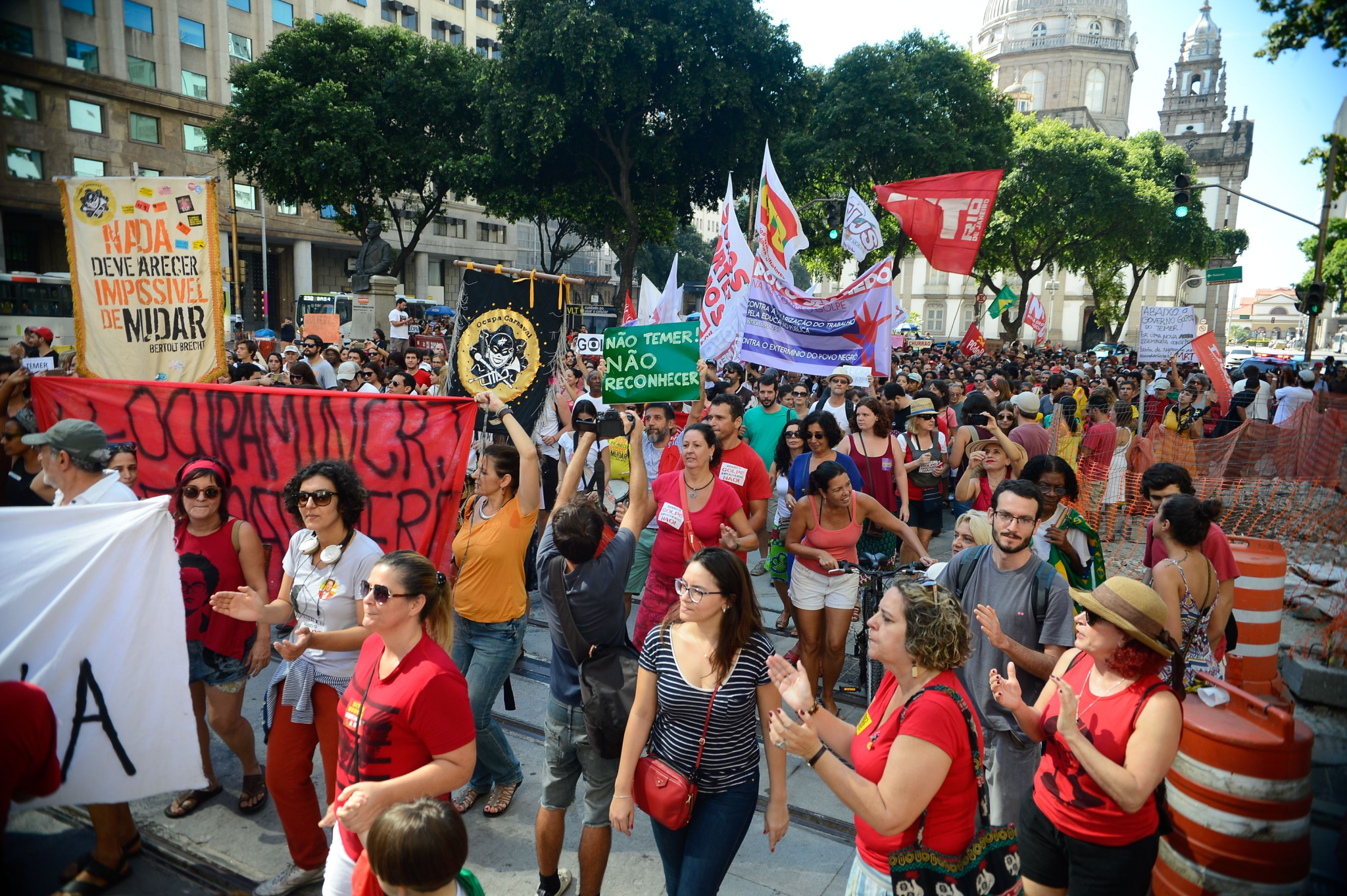Five Ways Corruption Has Hurt Democracy in Latin America

A couple years ago, a major corruption scandal came to light in Brazil. An investigation called “Operation Car Wash” (Operação Lava Jato) uncovered evidence that the Brazilian construction conglomerate Odebrecht had set up an elaborate system to pay bribes, overcharge on public works contracts, orchestrate kickbacks, and rig bidding systems. Allegedly, the company generated $3.3 billion illegally from 100 projects in 12 countries. Most impacted were government coffers, but the scandal spilled over on average citizens, political stability, security, and well-being in Brazil and neighboring countries.
Corruption does not always affect personal safety and livelihoods in such an obvious way. More often, it slowly erodes the functionality and people’s trust in institutions that are necessary to a healthy democracy. Over time, these institutions become a tool to serve corrupt and criminal actors in ways that can touch innocent lives.
Here are five ways corruption threatens the average citizen:
Robbing resources
Corruption steals government resources and investments for the public good. In Honduras high-level officials reportedly stole millions from the country’s social security system, robbing funds used for their benefits and pensions. Elsewhere, corruption has drained resources needed to address life-and-death problems like natural disasters, epidemics, and even basic health care. In fact, citizens sometimes have to pay twice—with taxes and then paying bribes to functionaries to obtain basic health services.
Threatening safety
In similar fashion, corruption turns poorly-paid public servants into predators. Among police, those tempted to be corrupt see opportunities to cash-in rather than provide a public service. Charging “tolls” at fake checkpoints or threatening citizens with an citations for invented crimes (potentially forcing the citizen to spend time and money resolving the issues in court), officers steal from those they are supposed to protect. This makes it far less likely for citizens to trust these key institutions when in trouble.
Corrupt armies can run illegal operations on the same scale as criminal cartels and mafias, as in the case of Venezuela. While the country may be bankrupt, some of its generals reportedly maintain a comfortable lifestyle trafficking drugs with attendant forms of violent crime. Four ex-governors in Mexico have been charged with money laundering, embezzling, and even one for cattle rustling this year alone.
Fostering impunity
Cultures of corruption encourage systematic law-breaking. This weakens the concept of equality under the law and the ability to enforce the law in any meaningful way. Elites guilty of corruption are rarely convicted because they can pay off law enforcement and courts. Over time, such behavior becomes normalized, and some business and political leaders think they can act with impunity. In Brazil, for example, only about five percent of officials accused of corruption have been convicted in the past—indicative of a system in which a certain level of corruption was tolerated.
Breaking Down the Rule of Law
With systemic disregard for laws, judges and the courts become dysfunctional. More mindful of patron-client loyalties, attorneys general become more concerned with protecting corrupt allies and promoting justice. In Guatemala, corruption had become so engrained that it took an international body, the International Commission Against Impunity in Guatemala (CICIG), working for years with civil society and activists to begin to revitalize the public expectations for the country’s justice system. Today, Guatemalan prosecutors and courts are gaining respect for acting against impunity, but there is still a long road ahead.
Promoting Political Apathy
When institutions no longer work, citizens become disaffected and no longer trust the political process. This is dangerous, because it is at this point that the cancer of corruption has metastasized. Democracy is built on the idea of participation, engagement, and involvement. When citizens no longer feel that there is a reason for them to be involved in their political process, authoritarianism becomes more likely, and countries may slide towards conflict.
The good news is Latin Americans are fighting back. The fact that so many corruption cases are making it into the news these days is a sign that justice systems are beginning to work. In fact, for many Brazilians, the country’s new hero is not a soccer star, but lead prosecutor Deltan Dallagnol in the Lava Jato case.
At the end of the day, robust democracies that respect the rule of law with governments accountable to citizens help strengthen security and prosperity both regionally and globally. An active civil society, free press, and transparent political parties are all necessary components to holding governments accountable. Without democracy, corruption will continue to flourish—but with democracy, citizens have a chance to create political systems that respond to their needs and build stronger, more peaceful societies.
Top